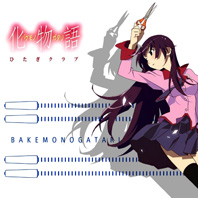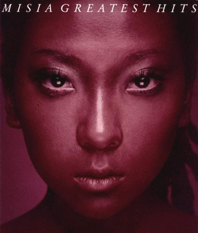Lesson 8: Expressing Your Feelings
Expressions
| Impression | ||
|---|---|---|
| That was good / not good. | Yo katta desu. / Yo kunakatta desu. | |
| That was funny (interesting) / boring. | Omoshiro katta desu. / Tsumarana katta desu. | |
| That was delicious / bad taste. | Oishi katta desu. / Mazu katta desu. | |
| That was beautiful / not beautiful. | Kirei deshita. / Kirei dewa arimasen deshita. | |
| That was easy / difficult. | Kantan deshita. / Muzukashi katta desu. | |
| That was effortless / hard. | Raku deshita. / Taihen deshita. | |
yo i: good omoshiro i: funny, interesting tsumarana i: boring oishi i: delicious mazu i: bad taste tsumarana i: boring muzukashi i: difficult kirei na: beautiful kantan na: easy raku na: effortless taihen na: hard |
||
Basic Rules i-adjectives - "i" + katta desu = past tense i-adjectives are the adjectives ends with "i" when it modifies a noun. To make it the past tense, remove ending "i", and add "katta". To make it negative, remove ending "i", and add "kunakatta". Examples: oishi i desu (It's delicious) / oishi katta desu (It was delicious) / oishi kunai desu (It isn't delicious). / oishi kunakatta desu (It wasn't delicious). na-adjectives + deshita = past tense na-adjectives are the adjectives ends with "na" when it modifies a noun. To make it the past tense, remove ending "na", and add "deshita". To make it negative, remove ending "i", and add "dewa arimasen deshita". Examples: kantan desu (It's easy) / kantan deshita (It was easy) / kantan dewa arimasen (It isn't easy). / kantan dewa arimasen deshita (It wasn't easy). |
||
| Likes & Dislikes |
||
|---|---|---|
| I like sushi very much. | Sushi ga dai suki desu. | |
| I like sushi. | Sushi ga suki desu. | |
| Sushi is OK. | Sushi ga mama suki desu. | |
| I don't like sushi very much. | Sushi ga amari suki dewaarimasen. | |
| I don't like sushi. | Sushi ga kirai desu. | |
| I hate sushi. | Sushi ga dai kirai desu. | |
suki: like, be fond of kirai: dislike dai_: Used to emphasize the following word. Only applicable to some words such as suki and kirai, not to all. |
||
| Emotions | ||
|---|---|---|
| I'm glad. / I was sad. | Ureshi i desu. / Kanashi katta desu. | |
| It's fun. / It was not fun. | Tanoshi i desu. / Tanoshi kunakatta desu. | |
| I got angry. / I didn't get angry. | Atama ni ki mashita. / Atama ni ki masen deshita. | |
| I feel lonely. / I didn't feel lonely. | Sabishii desu. / Sabishi kunakatta desu. | |
| I was surprised. / I was surprised. (more casual) | Odoroki mashita. / Bikkuri shi mashita. | |
ureshii: be glad, be pleased kanashii: sad tanoshii: fun, enjoyable atama ni kita: got ungly (atama: head + ni: into + kuru: to come) Used in the past tense. sabishii: to feel lonely odoroku: be surprised bikkuri suru: be surprised (sounds more casual) |
||
| Degree of Feelings | ||
|---|---|---|
| It's very hot. | Totemo atsui desu. |
|
| It's hot. | Atsui desu. | |
| It's a little hot. | Sukoshi (warito) atsui desu. | |
| It's not so hot. | Amari atsuku arimasen. | |
| It's not hot. | Atsuku arimasen. | |
| It's not hot at all. | Zenzen atsuku arimasen. | |
atsui: hot (temperature) totemo: very sukoshi: little / warito: relatively amari: not very_ zenzen: not at all |
||
Basic Rules different degree of feelings The list above shows how to express the different degrees. Top is the most positive and the bottom is the most negative. This rule can be applied to most cases. "sukoshi" does not fit to some words, and "warito (means relatively)" can be used instead. Examples: Ano eiga wa warito yokatta desu. (That movie was OK.) |
||
| About the Environment | ||
|---|---|---|
| It's hot. / It was cold. | Atsui desu. / Samu katta desu. | |
| It's warm. / It was cool. | Atatakai desu. / Suzushi katta desu. | |
| It's clean. / It was dirty. | Kirei desu. / Kitana katta desu. | |
| It's quiet. / It was noisy. | Shizuka desu. / Urusa katta desu. | |
atsui: hot (temperature) samui: cold, chilly (temperature) atatakai: warm (temperature) suzushii: cool (temperature) kirei: clean (also means beautiful) kitanai: dirty shizuka: quiet, silent urusai: noisy |
||
| About the Physical Conditions |
||
|---|---|---|
| Are you well? / I'm not feeling good. | Genki desuka? / Chōshi ga warui desu. | |
| Are you tired? / I'm not tired. | Tsukare mashitaka? / Tsukare te imasen. | |
| Are you hungry? / I'm full. | Onaka ga suite imasuka? / Onaka ga ippai desu. | |
| Are you thirsty? / I want to drink something. | Nodo ga kawaite imasuka? / Nani ka nomi tai desu. | |
| Are you busy. / I have time to spare. | Isogashii desuka? / Hima desu. | |
genki: being well choshi: condition (physical and mental) warui: bad tsukareru: be tired warui: bad onaka ga suku: hungry (onaka: stomach + suku: be empty) onaka ga ippai: full stomach (onaka: stomach + ippai: full) nodo ga kawaku: thirsty (nodo: throat + kawaku: be dry) isogashii: busy hima: nothing to do, have plenty of time |
||
| About a person |
||
|---|---|---|
| nice person / annoying person | ii hito / iyana hito | |
| gentle / cold (attitude) | yasashii / tsumetai | |
| beautiful / handsome | kirei / hansamu | |
| intelligent / stupid | atama ga ii / atama ga warui | |
| good at cooking / bad at cooking | ryōri ga jōzu / ryōri ga heta | |
|
ii: good, nice iyana: annoying, unpleasing hito: person yasashii: gentle, sweet tsumetai: cold kirei: beautiful (about women) hansamu: handsome (about men) atama ga ii: smart, intelligent (atama: head + ii: good) atama ga warui: dull, stupid (atama: head + warui: bad) ryōri: cooking (also means dishes, cuisine) _ga jōzu: be good at_ _ga heta: be bad at_ |
||











